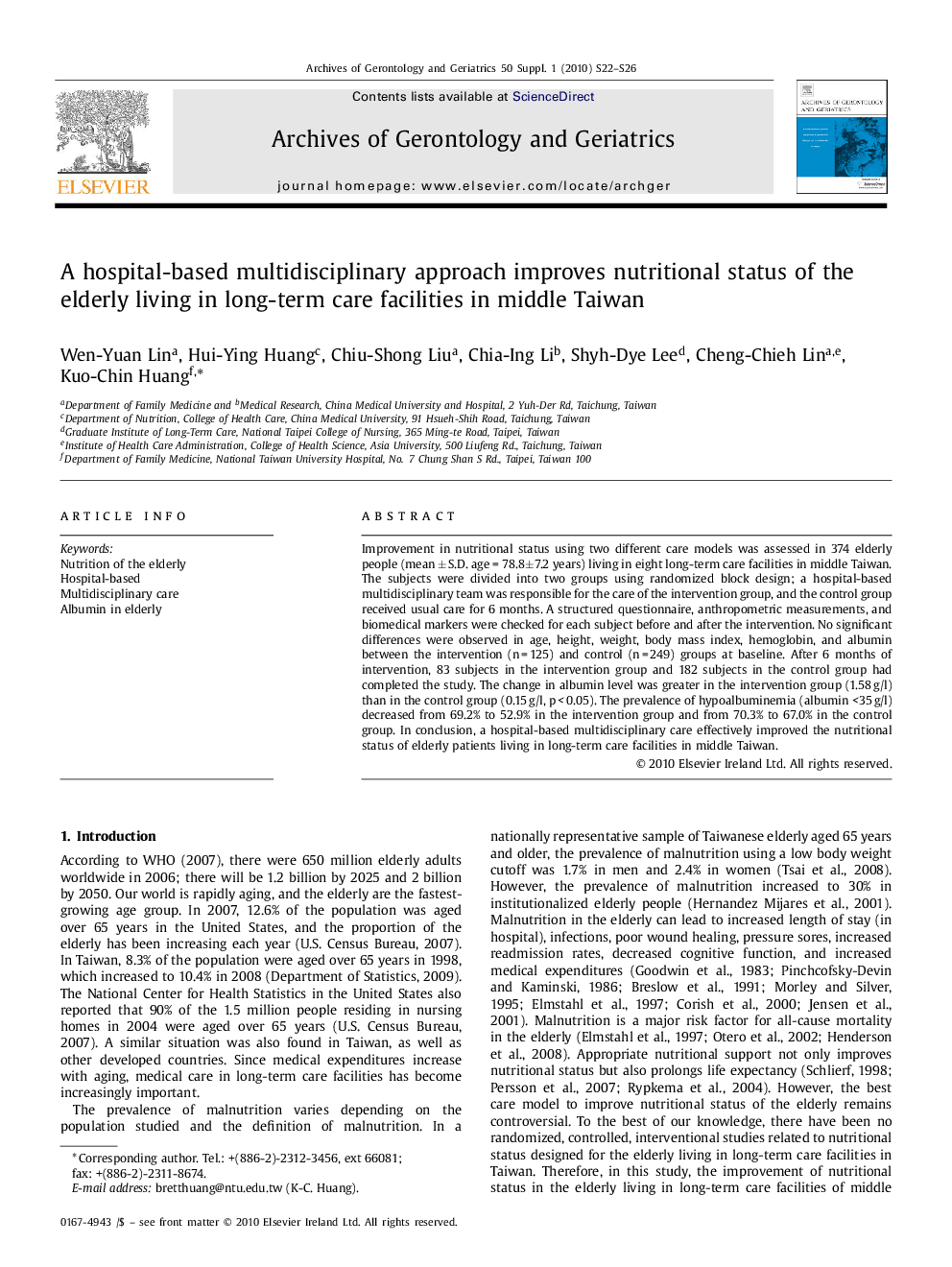| Article ID | Journal | Published Year | Pages | File Type |
|---|---|---|---|---|
| 1903774 | Archives of Gerontology and Geriatrics | 2010 | 5 Pages |
Improvement in nutritional status using two different care models was assessed in 374 elderly people (mean ± S.D. age = 78.8±7.2 years) living in eight long-term care facilities in middle Taiwan. The subjects were divided into two groups using randomized block design; a hospital-based multidisciplinary team was responsible for the care of the intervention group, and the control group received usual care for 6 months. A structured questionnaire, anthropometric measurements, and biomedical markers were checked for each subject before and after the intervention. No significant differences were observed in age, height, weight, body mass index, hemoglobin, and albumin between the intervention (n = 125) and control (n = 249) groups at baseline. After 6 months of intervention, 83 subjects in the intervention group and 182 subjects in the control group had completed the study. The change in albumin level was greater in the intervention group (1.58 g/l) than in the control group (0.15 g/l, p < 0.05). The prevalence of hypoalbuminemia (albumin < 35 g/l) decreased from 69.2% to 52.9% in the intervention group and from 70.3% to 67.0% in the control group. In conclusion, a hospital-based multidisciplinary care effectively improved the nutritional status of elderly patients living in long-term care facilities in middle Taiwan.
